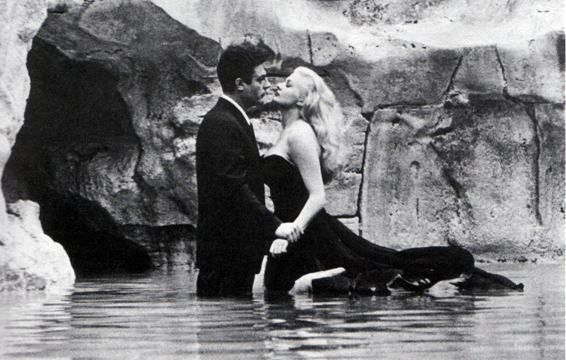|
Beautiful Antonio
''Beautiful Antonio'' () is a 1949 novel by the Italian writer Vitaliano Brancati. Set in the 1930s and 1940s, it is about a Sicilian man who easily attracts women with his beauty but fails in his attempted career in Rome and struggles with impotence as he returns to Sicily for marriage. The book deals with themes related to Southern Italian sexual ''gallismo'' and Fascist Italy. The book was first published in English as ''Antonio, the Great Lover'' in a 1952 translation by Vladimir Kean where some of the sexual content was omitted. A 1978 unabridged translation by Stanley Hochman was published as ''Bell'Antonio''. A translation by Patrick Creagh was published in 1991 as ''Bell'Antonio'' and reissued in 2007 as ''Beautiful Antonio''. ''Beautiful Antonio'' received the 1950 Bagutta Prize. It was the basis for the 1960 film ''Il bell'Antonio'', directed by Mauro Bolognini and starring Marcello Mastroianni in the title role. It was adapted for the screen again in 2005 as the two-p ... [...More Info...] [...Related Items...] OR: [Wikipedia] [Google] [Baidu] |
Vitaliano Brancati
Vitaliano Brancati (; 24 July 1907 – 25 September 1954) was an Italian novelist, dramatist, poet and screenwriter. Biography Born in Pachino, Syracuse, Brancati studied in Catania, where he graduated in letters and where he spent most of his life. While he started writing at a young age and at 25 years old he was already the author of six books, which were largely influenced by fascist ideals and which were later rejected by the same Brancati, critics tend to set the starting point of his career in 1935, when he released the collection of short stories ''In search of a cause''. Brancati got his first and probably major success in 1941, with the novel '' Don Giovanni in Sicilia'', a vibrant and humorous portrait of the Sicilian temperament. In 1944 he wrote the novel ''Gli anni perduti'' ("The Lost Years"), a bold satire of Benito Mussolini's megalomania, and in 1946 ''Vecchio con gli stivali'' ("Old Man in Boots"), a satirical short story inspired by the vicissitudes of th ... [...More Info...] [...Related Items...] OR: [Wikipedia] [Google] [Baidu] |
Marcello Mastroianni
Marcello Vincenzo Domenico Mastroianni (26 September 1924Come da lui stesso dichiarato a 1'10" dquesta intervista/ref> – 19 December 1996) was an Italian actor. He is generally regarded as one of Italy's most iconic male performers of the 20th-century, who played leading roles for many of the country's top directors, in a career spanning 147 films between 1939 and 1996, garnering many international honours including two BAFTA Awards, two Best Actor awards at the Venice Film Festival, Venice and Cannes Film Festival, Cannes film festivals, two Golden Globe Award, Golden Globes, and three Academy Awards, Academy Award nominations. Born in the province of Frosinone and raised in Turin and Rome, Mastroianni made his film debut in 1939 at the age of 14, but did not seriously pursue acting until the 1950s, when he made his critical and commercial breakthrough in the caper comedy ''Big Deal on Madonna Street'' (1959). He became an international celebrity through his collaborations wi ... [...More Info...] [...Related Items...] OR: [Wikipedia] [Google] [Baidu] |
Novels By Vitaliano Brancati
A novel is an extended work of narrative fiction usually written in prose and published as a book. The word derives from the for 'new', 'news', or 'short story (of something new)', itself from the , a singular noun use of the neuter plural of ''novellus'', diminutive of ''novus'', meaning 'new'. According to Margaret Doody, the novel has "a continuous and comprehensive history of about two thousand years", with its origins in the Ancient Greek and Roman novel, Medieval Chivalric romance, and the tradition of the Italian Renaissance novella.Margaret Anne Doody''The True Story of the Novel'' New Brunswick, NJ: Rutgers University Press, 1996, rept. 1997, p. 1. Retrieved 25 April 2014. The ancient romance form was revived by Romanticism, in the historical romances of Walter Scott and the Gothic novel. Some novelists, including Nathaniel Hawthorne, Herman Melville, Ann Radcliffe, and John Cowper Powys, preferred the term Romance (literary fiction), ''romance''. Such romances shoul ... [...More Info...] [...Related Items...] OR: [Wikipedia] [Google] [Baidu] |

